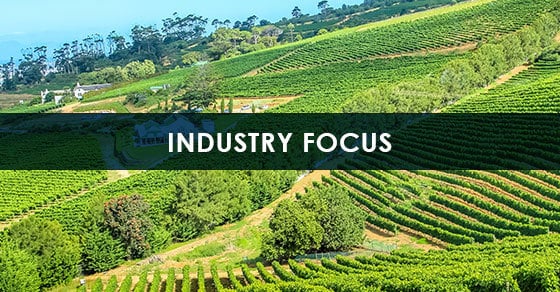Potash is increasingly being recognized as a limiting factor in crop production, both in quality and yield, making its role in meeting future food security needs critical. As a result, potash fertilizer production has never been more important.
Africa, a region that has historically struggled with food security, is hoping a domestic potash fertilizer industry will, at least in part, help advance agriculture and allow the continent to become a major contributor to global food production.
Up until now, Africa has relied almost exclusively on imports of potash, for which demand has been low, but that looks to be changing as miners dig in to the continent’s abundant resources and the push for implementing widespread commercialized agricultural practices in the region grows.
Africa’s Struggle With Food Security
The FAO recognizes Africa as having the greatest level of undernourishment in the world, with almost all subregions experiencing a rise in hunger statistics; in 2018, the estimate of undernourished individuals reached 260 million, with more than 90 percent residing in Sub-Saharan Africa (SSA).
In fact, SSA actually produced more food per person thirty years ago than it does today, according to the FAO, with the number of chronically undernourished people in the region having risen substantially.
While Africa’s undernourished population is the result of several factors, significant opportunity lies in increasing the region’s agricultural productivity, particularly by optimizing fertilizer inputs. And as Africa’s population is expected to triple by 2060, many are anticipating a substantial demand increase for fertilizers in the region.¹
Experts predict that meeting potassium input requirements will be especially crucial for Africa, considering the nutrient’s role in yield and the fact that it has largely been neglected as a crop input. This is where a domestic source of potash would give the region an essential foothold in reaching their goals.
A Domestic Source of Potash Fertilizer in Africa
As much of the world was making advancements in agriculture during the 20th century, many parts of Africa, and particularly Sub-Saharan Africa, fell behind, increasing food production by expanding the amount of land devoted to agriculture, as opposed to improving the productivity of the agricultural land already in use.²
Average fertilizer use in Africa is among the lowest in the world, despite the fact that more than half of the continent’s population works in agriculture. Farming in the region has remained inefficient and the fertilizer industry a mere sapling of what it could be, revealing a crucial opportunity for Africa to produce more food by improving agricultural productivity through the use of fertilizers.¹
Nitrogen and phosphate fertilizers are already produced in Africa, but up until now, potash has only been imported, despite being required by growing crops in substantial amounts. The lack of a domestic source of potash fertilizer means that growers pay a higher price for potash, which is already seen as a costly input. This has led to many of Africa’s soils being severely under-fertilized with potassium. ³
A domestic source of potash could not only help the continent to combat food insecurity, but it could also provide an opportunity for the region to become a significant contributor to global food supplies. According to SmallCaps.com.au, Africa holds the potential to increase its production of cereals and grains by two to three times, which would allow the continent to contribute as much as 20% of global output.
In addition, recent research has also revealed that potash is an important element in managing plant stress tolerance, which has become increasingly vital in the wake of worsening severe weather events.
Africa also holds opportunity in that it is home to the majority of the world’s untouched arable land, representing a blank slate for crop production.
Available Potash Resources in Africa
Despite relying on imports, Africa is home to numerous potash deposits. In recent years, these long-neglected resources have been garnering attention, with several mineral resources already under development.
The Danakil Depression, an area in the Horn of Africa, is of particular interest, as it not only contains a significant amount of potash, but it also hosts the world’s most shallow potash resource, making it highly attractive from an economic standpoint. Further, the Danakil Depression is unique in that in addition to SOP, a potash fertilizer that has recently become a favored alternative to MOP, it contains other potash salts, meaning it can produce multiple types of potash fertilizer.
Ethiopia, which houses part of the Danakil Depression, has been making headlines for their push to remove barriers associated with mining by incentivizing investors interested in developing mineral resources for use in fertilizer products – potash included. The push is an example representative of what others in Africa are hoping to accomplish as well: to build a robust fertilizer industry that puts Africa on the map for food production and snuffs out chronic hunger on the continent.
A number of other potash projects in Africa are also underway. In reviewing the current situation, research firm Mordor Intelligence recently reported that they anticipate Africa’s potash industry will witness a 7.4% CAGR between 2020 and 2025.
Conclusion
Potash is essential in meeting global food security needs, perhaps nowhere more importantly than in Africa, where a largely undeveloped fertilizer industry, coupled with an expanse of uncultivated arable land, illustrate potential for the continent to become a major food producer. Potash, with its contribution to crop quality, yield, and stress tolerance, will be a special focus of this effort.
Since 1951, the potash industry has relied on FEECO for the best in custom potash processing and fertilizer production equipment and systems, development services, and parts and service support. For more information on our potash capabilities, contact us today!

